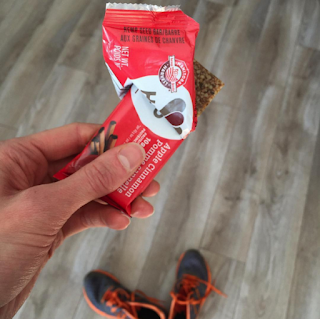A new entrepreneur and a fellow dietitian that also got into the field because of wanting to work in sport nutrition. She reminds us of the importance of time management when your job requires you to wear a lot of different hats, and also the many skills dietitians have, or can learn, to be successful. I too, took a long time to finish my degree, (the world of volleyball called me) and agree that we're in an exciting time for our field! Why did you become a RD?
It’s funny, I became an RD because I thought I wanted to be in sports nutrition. I really didn’t know what else was out there, besides weight management and sports nutrition. It was all I had ever been exposed to. Little did I know, there was an entire world of dietetics out there I had yet to explore!
What area of dietetics do you work in?
I’ve spent the majority of my career working in acute care, in a variety of settings including oncology, liver transplant and cirrhosis, and cardiology. Recently though, along with a move to a new city, I’ve been exploring the life of an entrepreneur – through the world of private practice – specializing in IBS and IBD, as well as weight management.
How would you explain what you do?
I.Do.Everything. There’s really no better way to say it. Running a private practice and successful nutrition blog, I’ve become an IT person, a writer, a social media expert, a public speaker, an entertainer, a recipe developer, a mentor, and lastly, of course, a dietitian.
What are your ‘typical’ daily/weekly tasks?
What is so exciting about running my own business is each day is new. The first few months of running my business, I felt like I was just putting out fires – but now, I try to segment my time - in between my client appointments and meetings, I schedule time dedicate to creating content, to social media management, and to networking.
What has been your career path?
When I graduated, I went straight into acute care. After the 6 years it took for me to complete my degree (I took some time off in the middle of my degree), I realized my passion lay in problem solving. Acute care was so rewarding, with the team environment and ability to affect change. After 5 years in acute care, I’ve transitioned to private practice – growing my business and exploring a whole other avenue of problem solving. I love the diversity in my job now – from relationship building, to content creation, to one-on-one counselling, to public speaking. It’s a ton of fun, and keeps me on my toes!
What advanced education or special training do you have?
One of the most valuable courses I’ve taken was on motivational interviewing through AHS (Alberta Health Services). It really changed my entire perspective as an RD. I’ve been involved in publishing a few papers, and am looking to make room for research in my portfolio as my business grows.
In an ideal world, what does the industry look like 5 years from now?
In an ideal world, in 5 years (such a short time!) dietitians will DOMINATE the market in terms of nutrition. I’ve spoken with so many great private practice RDs that realize we have to take back nutrition as our own. And to do that, we have to make nutrition hot and sexy – like all of our less-qualified competitors do. I really believe the RDs I’ve spoken with are in the midst of a GIANT movement towards this, and I’m SO excited to see what happens. Move over – cause this #aintyourmamasnutrition!
What misinformation about RDs would you like to clear up?
That we’re not the apron-wearing, judgey, spend-hours-in-the-kitchen kinda women (and men!) that everyone stereotypes our profession into. We come in all different shapes and sizes. We like different foods. We drink martinis. We eat cheeseburgers. But somehow, we still live healthy lifestyles. We are the epitome of normal-eating role models - the public would be better served idealizing our focus on balanced lifestyle rather than the bastardized version of perfect, healthy eating society and the media stuffs down our throats, day in and day out.
What are challenges you encounter as a RD?
I think the biggest challenge right now is dietitians’ role in becoming bigger than the misinformation out there. How can we, as professionals, think bigger, grow bigger, and become an absolute authority in nutrition? I’m still figuring that one out – but am setting some seriously lofty goals to take over the world. I really think we should be challenging ourselves to innovate practice and think bigger.
What do people think that you do for a living?
People think I make meal plans. (Gags). Funny enough – I wrote a blog post that went viral about it - (
Do Dietitians Make Meal Plans? What dietitians do and don’t do) - talking about what RDs ACTUALLY do.
What are you passionate about in dietetics?
Haha – very clearly, making dietitians the most bad-ass nutrition experts out there. Just sayin’.
What makes RDs unique/different from other nutrition/wellness professionals?
I love this question. It’s funny, holistic nutritionists aren’t necessarily ‘wrong’ when you look at their big picture messaging. They’re really trying to get people to eat healthy, and while they may miss the mark on some messages, in general, if people were to follow what they are saying, I do think they would be healthier for it. Where an RDs skills far exceed other wellness professionals are in our ability to expertly review the literature, provide realistic and appropriate strategies for long term change, and I really think most importantly, keep people safe. Not only from all the bat-shit crazy supplements out there, but from people doing more harm to themselves than good through yo-yo dieting and inappropriate counselling methods.
What is your favourite meal?
The one coming up next!
More about Andrea:











